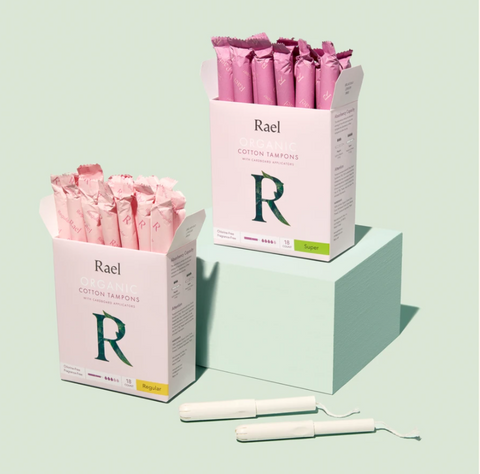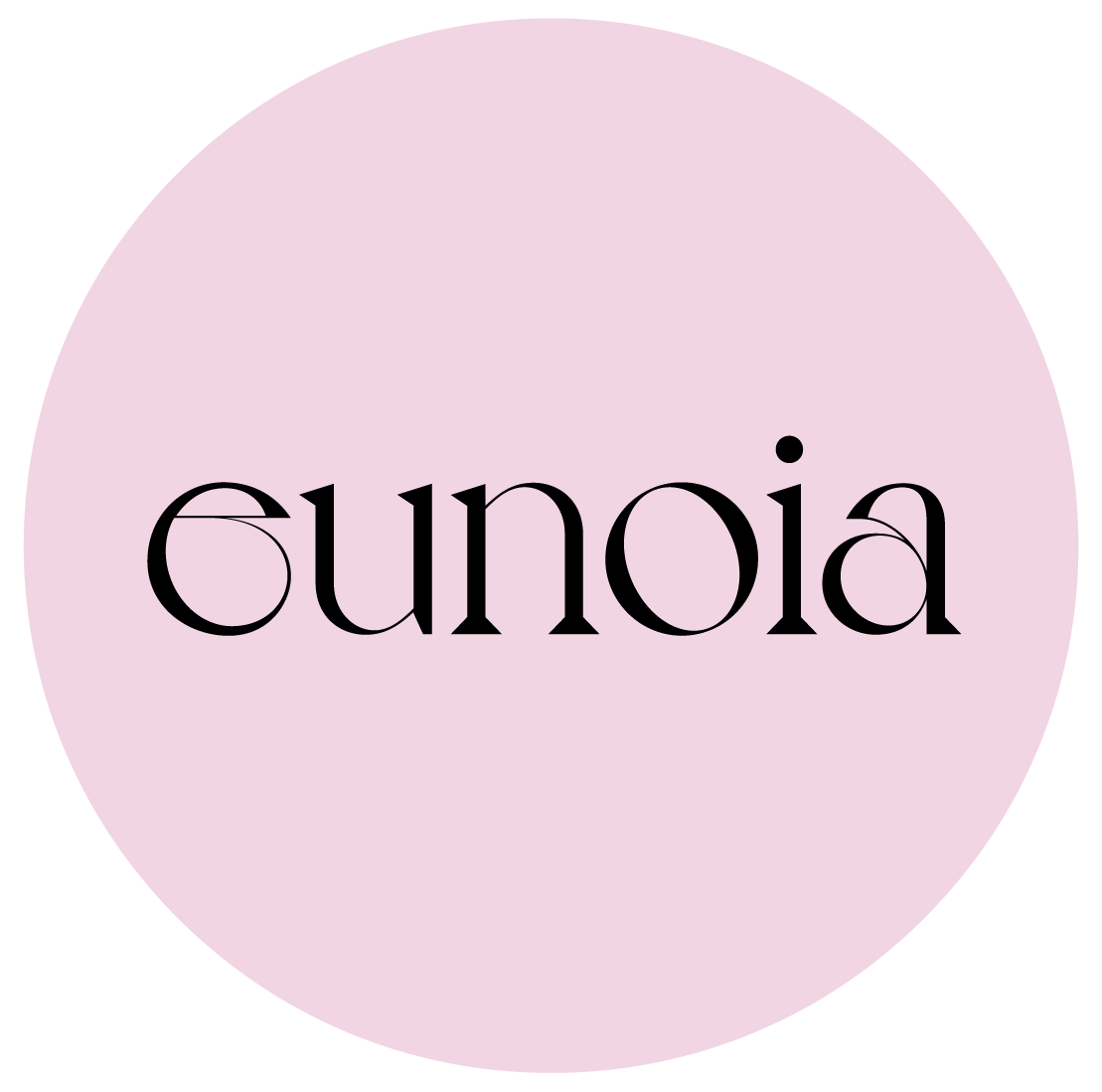Overcoming Red Days 101: Finding a Clean and Sustainable Feminine Care

Written by Eunoia
Image retrieved from @the.pinklemonade
Periods are often nuisances, but they don’t have to be. They require careful maintenance, but once you find the right products for your body and your health, the monthly process will be simple. We have done the job for you, and have cultivated a list of products that are clean, sustainable, and innovative creations in the feminine care world.
Commonly Used Feminine Care Products During Menstruation
There are a variety of different ways that you can manage your menstruation hygiene. Some of the most common feminine care products include:
Pads
Pads stick to your underwear to absorb the flow. It is important to change pads at least every 3 to 4 hours regardless of the flow volume to avoid odor from bacteria growth. If you want to opt for a traditional feminine item, pads are the most convenient.
Tampons
Tampons are trickier to use as they require internal insertion, which can be uncomfortable for some users. Tampons rest inside the vaginal canal, directly absorbing the fluids and the vagina's natural lubricant and bacteria. Tampons and pads are made with absorbent fibers, both natural and synthetic, including cotton and rayon. You can use tampons by yourself, but some women use pads or liners together with tampons for additional protection from possible leakage.
Menstrual Cup
This product has been the talk of the internet lately. The use of menstrual cups started in the 1960s when they were still made from aluminum cups. Sounds painful, right? However, modern menstrual cups are made from medical-grade silicone to make them more convenient. Unlike tampons, this product does not dry out the vagina's natural moisture.
The insertion process is what makes some people uncomfortable with this item. To insert, fold the cup in half like a taco, pinching it between the fingers. While maintaining the pinch, insert the cup into the vagina, and release. Many women say that their cramps are more manageable when using a cup because the flexible material moves with uterine contractions.
Period Proof Underwear
This underwear can do wonders, but it's not magic. Period underwear is made with multiple layers of microfiber polyester. Microfiber polyester is absorbent, so it helps quick-drying and prevents blood from staining your clothes. Meanwhile, the outer layer of period-proof underwear is made from nylon and lycra. This underwear is also topped off with a liquid-repellant film to prevent further leakage to make you feel more at ease. If you're used to getting tampons or pads, you may not be used to feeling the flow of your menstruation with period underwear. But if used correctly, you can trust that period-proof underwear will prevent leakage.
While these options all work, they are not necessarily good for the environment. It's easy to dismiss pads or tampons as 'just one of those things that can't be sustainable', but that's wrong. Eco-friendly menstruation products do exist.
Sustainable Fashion Fabrics On Feminine Care Products
Here's a list of some of our favorite sustainable products:

@thundergirl_xtal
Pads and Tampons
The first item on our list is an absolute nature-friendly item. As per the website's description, these Organic Cotton Reusable Liners from Rael are crafted with organic cotton and designed to last up to 120 uses each. Rest assured that there are no harsh chemicals that irritate and inflame your intimate areas, disrupt your hormones, or expose you to carcinogens. These pads are made from breathable organic cotton to keep you fresh while preventing irritation and alleviating odor.

@rael
They also have pads that are crafted with plush organic cotton and a super absorbent core to keep you dry and comfy, so that the time of the month feels like any other time. What's more interesting is these pads have over 600 reviews on Amazon and are their best-sellers! Rael also offers tampons that are made with certified organic cotton that conforms to your body and absorbs quickly.

@amazon
Next on our list is Cora's Unscented Tampon with a BPA-Free Plastic Compact Applicator. This product is made without synthetics, dye, or fragrances, which means it's safe to use on your red days. Cora started revolutionizing the female wellness space by creating naturally powerful body care several years ago. They also encourage women to move fearlessly through periods, bladder leaks, pre-and postnatal care, and other natural parts of the female experience using their products.

@dame
If you want something reusable and classy, then feminine care items from Dame are perfect for you. Dame offers reusable, self-sanitizing applicators made from Mediprene that make using organic cotton tampons easier. They also offer reusable period pads that, according to their website, “can save over 2,000 plastic disposables and 40x carbon emissions.”

@dame
Menstrual Cup

@saalt
Saalt describes its Soft Cup as “both gentle and super comfortable for those with bladder sensitivity, cramping, or discomfort with firmer cups.” These menstrual cups have a chemical-free formula that is naturally hypoallergenic, non-toxic, BPA-free, and latex-free. The cup maintains your unique pH and will never dry you out, leave a fibrous residue, or cause micro-tearing, risk infection, or Toxic Shock Syndrome.
Tonics and More

@ohne
The next items are fun to try, but not necessary. Ohne offers a soothing elixir to help your uterus. They also have a CBD duo called "we stan a power couple" that claims to be a hormone-balancing supplement. Plus, their website is also interactive and fun to visit. But, the fun never stops there. Ohne also offers Bliss Bar, a vegan chocolate bar made with CBD, dark chocolate, and vanilla. If you're in the mood for some pampering, they also have a CBD bath bomb wrapped in compostable packaging. It is best to consult a gynecologist or an expert if you are interested in using the mentioned products.
Period Undies

@grovecollective
The last but not the least sustainable item on our list is from Grove. Their period underwear is “made from organic cotton and is a reusable alternative to tampons and pads.” According to their website, this underwear absorbs up to 1 tampon's worth of blood. Since it's made from sustainable fabric, it can be washed and re-worn again and again; a product that will definitely last for a long time. If you're not a fan of sticking pads on your undies, inserting tampons in your private area, or dealing with the process of menstrual cup insertion, this is the go-to period partner for you.
Using Nature-Friendly and Sustainable Feminine Care
Many traditional feminine hygiene products bring negative effects not only on our health but also on the environment. According to Harvard Technology, almost 11 billion sanitary product wastes are being disposed of annually. What's more alarming is that feminine hygiene waste can take centuries to biodegrade. The waste is toxic and hazardous to human health too. The chemicals from the sanitary products affect bacteria production and risk other complications like TSS (toxic shock syndrome).
Sadly, many of the sustainable menstrual products available today are more expensive than their non-sustainable brethren. Much has to change still. When deciding between options, do your research and ask the experts. We don't recommend impulsive decisions when it comes to your health. Take care of your own body while also helping Mother Nature to be in a better state by supporting sustainable feminine care products.

@diztantdreamer
The Final Takeaway
Aside from the items listed above, you can find a lot more sustainable products in the market today. However, it is also essential to keep in mind that not all organic tampons and pads or any period items are better for your health than regular varieties. Aside from using whichever feminine care items you're most comfortable with, it's still best to consult a gynecologist with any concerns you may have.

